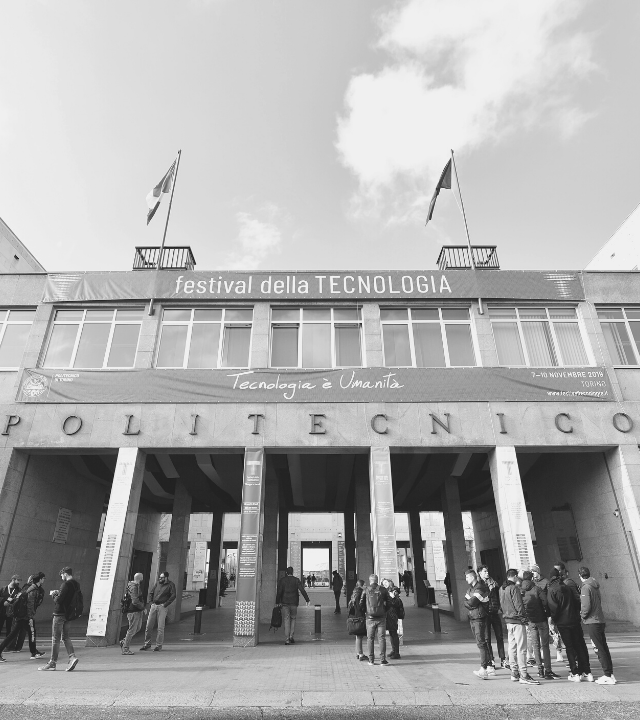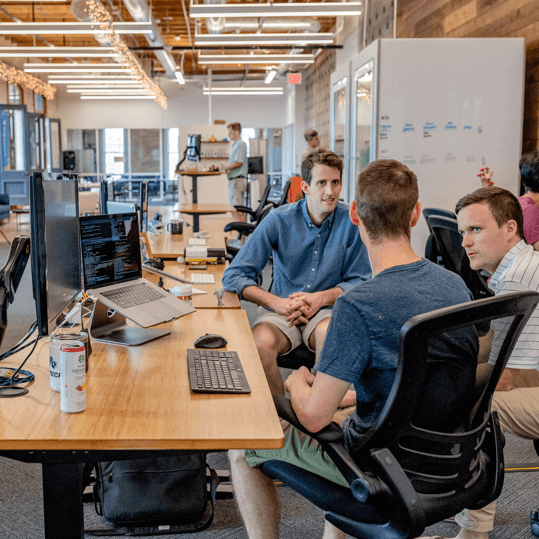The research activity of the Center focus on the development of an integrated framework for understanding the dynamics of innovation and entrepreneurship, with a particular interest on how to apply best practices and new ideas to the local ecosystem.
The innovation process is studied according to a systemic approach. In this perspective, the research activities are oriented at investigating not only the characteristics of innovative start-ups, but also the role of different stakeholders (large corporations, financial institutions, regulatory bodies, universities and public research centres, incubators) that contribute to shape the environmental conditions of local entrepreneurial ecosystems.
The key research topics that the Center is involved into can be summarized along the following lines of activity.

This research line is dedicated to the analysis of digital transformation processes and digital platforms, whose impact is revolutionizing industrial structures, business strategies, business models, and work practices, while also redefining the nature of the required skills. Numerous sectors, both traditional and non-traditional, are indeed undergoing profound transformations, as evidenced by emblematic examples such as Airbnb in tourism or Uber in transportation.
The activities of this research line focus on several topics, including:
- the study of the consequences of digital transformation on the productivity gap between countries and economic sectors, with a focus on the Italian context and a comparison with the United States and other European Union countries;
- the study of digital platforms and the factors that determine their performance;
- the effects of the spread of digital platforms on markets, society, local ecosystems, and the stakeholders operating within them;
- the evaluation of the impact of regulations, or other direct and indirect events, on digital transformation practices and on the operations of platforms.
The objective of the research is twofold: on one hand, to offer insights for an effective governance of digital transformation; on the other, to provide empirical evidence useful for the development of targeted regulatory policies.
The research is conducted both nationally and internationally, in collaboration with Italian and European universities, including Audencia Business School (France), Grenoble École de Management (France), Universidad de Oviedo (Spain), as well as with local stakeholders.
Referent : Elisabetta Raguseo - Associate Professor
Referent : Danilo Pesce - Assistant Professor
Referent : Francesco Milone - Assistant Professor

Green entrepreneurship, sustainability, and circular economy. This line of research is dedicated to the interplay between businesses and the environment. It analyses three macro-themes: (1) circular economy market strategies, new business models and digitalization as an enabler of circular economy practices; (2) eco-innovation and patenting activities, green innovations (including radically disruptive technologies such as artificial photosynthesis), and (3) green start-ups and social entrepreneurship, looking at sustainability also in terms of governance, gender and inclusivity, triple-bottom line frameworks (profits, people and the planet) and concrete examples such as B-corps. This line of research focuses on strategies for scaling up sustainable and inclusive solutions within enterprises, considering large-scale trends such as Industry 4.0, climate resilience, and actions in line with the Sustainable Development Goals, both from the firm perspective and systemically.
Referent: Chiara Ravetti - Assistant Professor
Referent: Andrea Tuni - Assistant Professor

Entrepreneurship education is an emerging area of research and includes several topics related to the analysis of the impact of entrepreneurship education on the creation of new firms; the effectiveness of entrepreneurship teaching methodologies in fostering entrepreneurial attitudes and skills. By a methodological viewpoint, the research activities be based also on comparative case studies of academic institutions and research centres worldwide. The results of this line of research are expected to provide valuable knowledge for the development of new training initiatives and for the evaluation of the related expected impacts. The line of research is also meant to adopt innovative teaching methods with the relevant contribution of large companies that are expected to provide both mentorships and specific challenges to be addressed.
Referent: Andrea Panelli - Assistant Professor
Referent: Francesco Serraino - PhD Student

This line of research is dedicated to the analysis of the collaborative landscape characterizing entrepreneurial ecosystems, emphasizing the role of open innovation in facilitating the flow of knowledge, technology, and ideas, forging new connections, and sustaining entrepreneurship. It investigates how open innovation principles can stimulate and sustain relationships among various stakeholders—ranging from young and innovative start-ups to large, established companies and institutional investors. By understanding the dynamics of these collaborations, the line of research seeks to uncover how open innovation contributes to the growth of the entrepreneurial landscape.
Particular attention is given to the role of universities in sustaining entrepreneurial activities and promoting knowledge and technological transfer; supporting the local context in the creation of new companies; fostering new relationships among young and innovative start-ups, large and well-established companies, and institutional investors through open innovation principles.
Referent: Cristina Marullo - Assistant Professor
Referent: Elettra D'Amico - Assistant Professor

This line of research is dedicated to the analysis of the features of private equity markets and their impact on the entrepreneurial success. Within such broad area, the research activities focus on specific topics, such as the role of publicly sponsored venture capital funds, the impact of the characteristics of target firms founding team on the likelihood of success, the phenomenon of cross-border investments in innovative start-ups, the evolution of the business angels segment. This line of research is also meant to provide relevant strategic policy insights for the development of local financial ecosystems that can effectively support the growth of new ventures in different sectors.
Referent: Antonio De Marco - Assistant Professor
Referent: Federico Caviggioli - Associate Professor

This research line is dedicated to the economic analysis of intellectual property rights (IPRs), under different perspectives. IPRs represent fundamental assets for technology transfer and their effective management requires specific advanced skills, also in the context of academic patenting. An appropriate use of IPRs can favor the set up of collaboration between large companies and start-ups.
The research activities focus on:
- The analysis of IP management practices in small and large firms and the development of advanced methodologies for technology intelligence based on patent data-mining;
- The study of the barriers to the development of efficient markets for the trading of IPRs between firms and between public research institutions and companies;
Referent: Federico Caviggioli - Associate Professor
Referent: Antonio De Marco - Assistant Professor

This line of research is dedicated to studying how the creation and diffusion of innovation interacts with various characteristics of civil society. Therefore, themes such as the presence and construction of social capital that entrepreneurs can leverage to mobilize resources and which they also contribute to shaping are relevant; the role of support institutions such as incubators and social accelerators, but also co-working and interaction spaces; the presence of policies supporting the development of entrepreneurship attentive to social impact. This line also includes research aimed at identifying how innovation affects the objective and subjective well-being of citizens, and what the determinants and the economic and social performance are of social and philanthropic business models implemented by for-profit, non-profit, or hybrid organizations.
Referent: Matteo Tubiana - Assistant Professor
Referent: Chiara Ravetti - Assistant Professor

This line of research is dedicated to exploring the impact that the use of Artificial Intelligence by companies has on work in its multiple facets. To describe work, it is in fact necessary to analyze its presence (employment), but also its remuneration (wages and bonuses) and quality (conditions and satisfaction), as well as the nature of the tasks performed. This line of research brings together studies that examine in as much detail as possible how Artificial Intelligence, rather than replacing work, modifies its execution, making it necessary to think of new organizational and management models. Methodologically, the first objective is to gather new qualitative and quantitative evidence at the firm level on the application of Artificial Intelligence, in order to implement both impact assessments and business cases useful for updating and expanding key theories of management and organization. The research is conducted in collaboration with technologically advanced companies exposed to technological change and through relationships with international research centers.
Referent: Matteo Tubiana - Assistant Professor